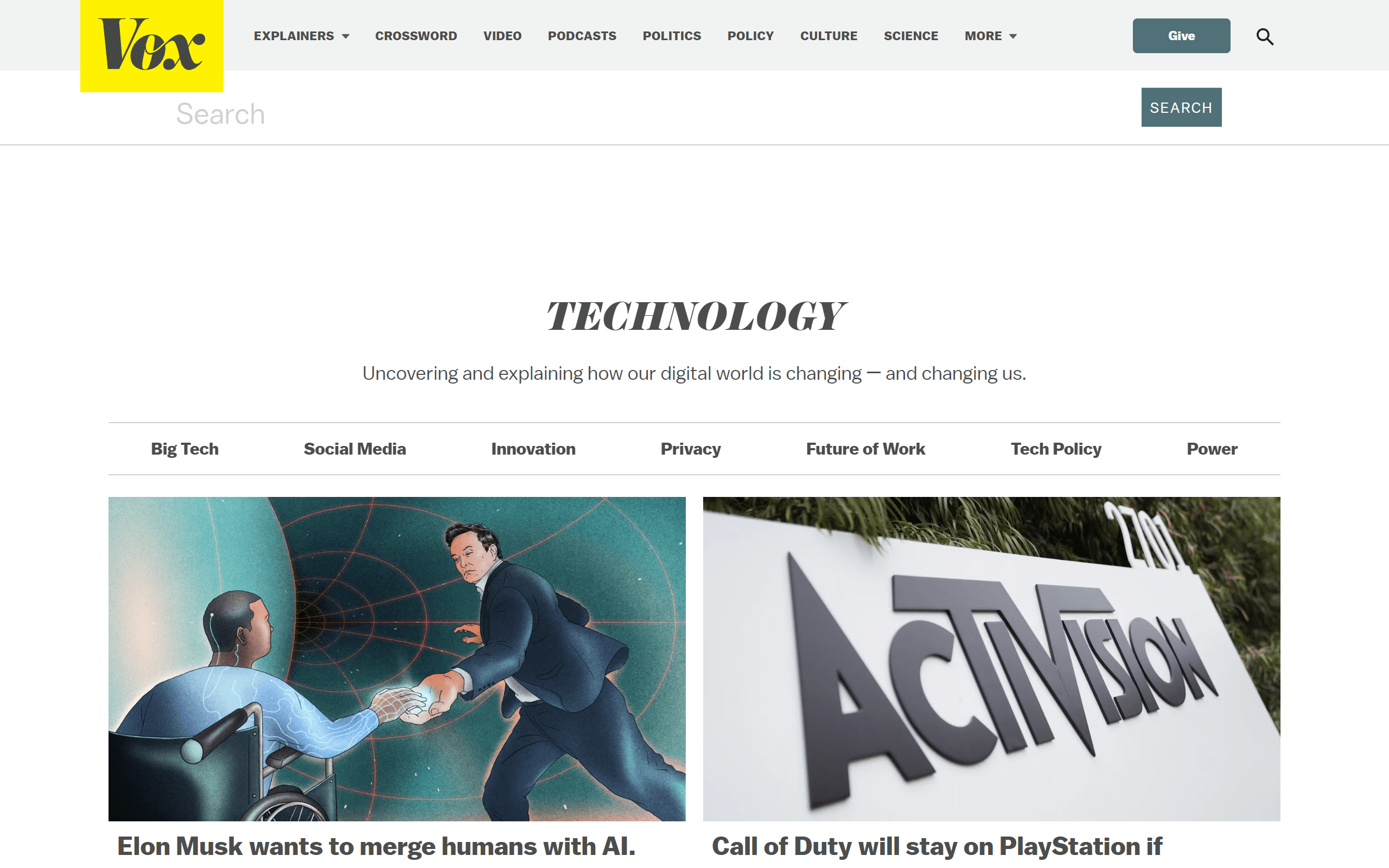What Makes the Best tech blog Stand Out Among Tech Fanatics and Professionals
Wiki Article
Just How Blockchain Modern Technology Is Revolutionizing Information Security
Blockchain technology is fundamentally changing the landscape of information safety and security by presenting a decentralized structure that guarantees enhanced transparency and strength. Unlike standard systems, which count on centralized information repositories, blockchain distributes information throughout a network, decreasing susceptabilities and single points of failing. The use of advanced cryptographic methods guarantees that information remains tamper-proof, promoting trust fund amongst stakeholders and customers.The Basics of Blockchain
Blockchain technology, an innovative idea in electronic information management, essentially changes just how info is saved and safeguarded. At its core, a blockchain is a dispersed journal that records purchases across a network of computer systems, making sure openness and immutability. The modern technology operates a chain of blocks, each having a listing of deals. As soon as a block is filled up, it is time-stamped and linked to the previous block, developing a sequential chain.Key to comprehending blockchain is the hashing procedure, which encrypts deal data into a distinct alphanumeric code. This cryptographic function guarantees that any alteration in the deal data leads to a totally various hash, therefore guarding against tampering. The agreement device, another important element, validates and verifies new deals via a network of nodes, therefore removing the demand for a centralized authority.
Additionally, blockchain's append-only framework makes certain that data, as soon as added, can not be removed or altered. This particular warranties a irreversible and verifiable document of transactions, fostering count on among individuals. Consequently, blockchain gives a durable framework for data honesty, offering industries a reputable technique for tracking and handling digital info in a safe, transparent fashion.
Decentralization and Security
Decentralization, a core principle of blockchain modern technology, substantially boosts information security by distributing control across a network rather than depending on a singular, centralized entity. By dispersing data throughout many nodes, blockchain ensures that even if one node is endangered, the entire network continues to be secure.
Additionally, decentralization encourages users with greater control over their data. Each participant in the network has access to the whole blockchain, permitting them to verify and investigate purchases separately. This openness cultivates count on amongst users, as they do not have to count on a main authority to guarantee data integrity. In general, decentralization is critical in boosting information protection in blockchain networks.

Cryptographic Strategies
At the heart of blockchain innovation, cryptographic methods play an essential function in protecting data, making certain both privacy and honesty. Cryptography in blockchain employs a combination of symmetric and asymmetric formulas to encrypt data, making it accessible only to licensed events.Hash functions are an additional vital part, transforming input information into a fixed-size string of personalities, successfully producing an unique digital finger print for each block. This guarantees that any type of attempt to change the data will cause a totally different hash, hence keeping the immutability of the blockchain. websites Electronic signatures validate the credibility and integrity of purchases, offering a layer of non-repudiation.
The decentralized nature of blockchain, integrated with durable cryptographic techniques, eliminates the demand for middlemans, minimizing possible susceptabilities. As blockchain innovation evolves, improvements in cryptography such as zero-knowledge evidence and homomorphic file encryption remain to enhance safety and security procedures, further fortifying data security in this advanced digital ledger system.
Usage Instances Across Industries

In the medical care sector, blockchain ensures the safe storage and sharing of patient records, advertising interoperability while protecting delicate information from unapproved gain access to. This modern technology encourages clients with control over their case history and helps with seamless coordination amongst doctor.
Supply chain monitoring benefits substantially from blockchain's immutable ledger, which ensures traceability and authenticity of items from origin to consumer. By enhancing openness, blockchain aids alleviate problems such as counterfeiting and dishonest sourcing.
In addition, blockchain's decentralized nature is reshaping the energy sector by allowing peer-to-peer energy trading, where consumers can acquire and market excess renewable resource straight. This fosters a much more lasting and effective energy environment.
In the realm of intellectual building, blockchain gives a tamper-proof system for designers to sign up and protect their works, guaranteeing rightful attribution and reasonable settlement. These varied use situations highlight blockchain's function as an essential pressure in redefining data safety throughout industries.
Future of Information Security
As we look to the future of data security, blockchain technology is positioned to play a pivotal function in safeguarding electronic information. With its decentralized and unalterable features, blockchain uses a robust structure for safeguarding sensitive information against unauthorized accessibility and cyber threats. This innovation guarantees that when information is recorded, it is almost impossible to change without discovery, therefore offering a significant advantage over standard information storage space techniques.The assimilation of blockchain with various other innovative modern technologies, such as man-made knowledge and the Net of Things (IoT), is expected to enhance data protection methods even more. By leveraging wise contracts, organizations can impose and automate safety procedures, minimizing human mistake and raising efficiency. Additionally, blockchain's ability to offer deducible and clear purchases will reinforce count on and accountability in data monitoring methods.
As regulative landscapes develop, blockchain's compliance-friendly nature will come to be increasingly pertinent. It can aid here companies meet stringent information security guidelines, such as the General Information Security Regulation (GDPR) and the California Customer Personal Privacy Act (CCPA), by supplying proven records of data handling tasks. Inevitably, blockchain's unique attributes placement it as a transformative device in the recurring pursuit to safeguard the electronic world against ever-evolving cyber threats.
Verdict
Blockchain innovation represents a standard shift in data safety and security by leveraging decentralization and cryptographic techniques to improve openness, trust, and information integrity. Its capacity to get rid of single factors of failure and use consensus systems substantially minimizes the risk of fraud and cyberattacks. This innovative structure not only equips customers with better control over their data however also aligns with governing compliance. As cyber dangers progress, blockchain becomes a vital device for robust information defense across different sectors.Blockchain modern technology is essentially modifying the landscape of information security by introducing a decentralized framework that guarantees improved transparency and resilience. Unlike typical systems, which rely on central data repositories, blockchain distributes data across a network, minimizing vulnerabilities and single points of failure.Decentralization, a core concept of blockchain modern technology, considerably improves data safety by distributing control across a network rather than depending on a singular, central entity.At the heart of blockchain modern technology, cryptographic strategies play a crucial duty in protecting data, guaranteeing both privacy and stability.Blockchain modern technology stands for a standard change in data protection by leveraging decentralization and cryptographic methods to enhance transparency, trust, and click here to read information honesty.
Report this wiki page